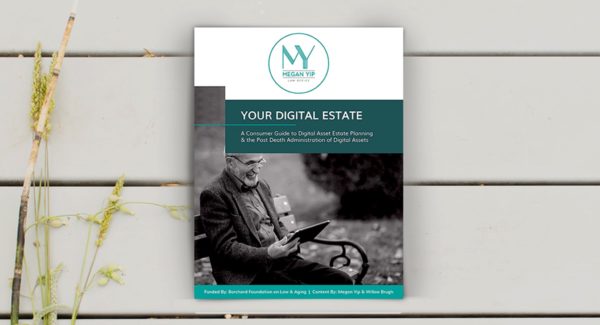Business Succession Planning in the Internet Age

I originally looked closely at this topic with my colleague Doug Bend, of the Bend Law Group. We presented on this topic in San Francisco earlier this year and a version of this article was originally published in Forbes.
Many business owners build their businesses hoping that they will continue to generate income for their heirs after they pass away. However, businesses often die or lose significant value when the owner dies.
When strategizing how to make sure your business continues to thrive, it is important to know that if you do nothing, your business already has a default game plan in place. If no additional planning is done, your business is an asset of your estate and will be subject to probate.
There are four problems with this default game plan. First, it can take years for a court to probate your estate. In the meantime, your business can wither on the vine until the probate has been finalized. Second, if you do not have an estate plan, your heirs can fight over who will inherit the business. Third, whoever inherits the business under defaults in the law (intestate succession) might not be the best person to make sure your business will continue to grow and be successful. Lastly, if you have co-owners, they might not like the heir to your estate and could quickly get into disputes with the new owner that harm the business.
There are two legal tools to consider when evaluating your options:
1. Buy-Sell Agreement
A buy-sell agreement is a legal contract between the co-owners of a company that addresses a variety of business-changing events, including when an owner dies. Instead of the deceased owner’s equity being a part of the assets that are distributed during probate, the buy-sell agreement can include an agreed-upon amount that will be paid to the estate in exchange for the business repurchasing the equity. Often, the purchase amount is financed with a life insurance policy on each owner of the business.
2. Proper Estate Planning
Instead of allowing your business to be subject to probate, the business owner can work with an estate planning attorney to have the business be an asset of the owner’s trust. This replaces a probate process that can take years with a more seamless transition from the deceased beneficiary to their heirs.
Whether you choose a buy-sell agreement or to include your business interests strategically in your estate plan, make sure you pay attention to the digital assets that are important to the continued operation of your business. Your business’s digital assets may include client lists and data stored in software systems, primary communication channels like email addresses, intellectual property or creative products, and even revenue streams like online stores or websites.
Here are my top three tips on considering your digital assets.
1. Know the policies that affect your tools.
Most of our businesses today depend on software for managing client data, communicating with clients and keeping track of productivity. As part of your plan and regular course of business, review your software provider’s policies on what happens if your company needs to name a new point of contact, pay bills in a different way or be transferred to a different company in case the unexpected happens.
2. Balance security with redundancy.
Many business owners focus on the security and safety of information and digital assets used in their business, and rightly so. A business’s success demands that owners and employees alike keep proprietary information and client information secure. However, that concern for safety needs to be balanced with a sort of redundancy that considers which trusted individual or team of people will have access to digital assets and an understanding of what to do with them if the owner or main management team is unable to tend to business as usual for any reason, including death.
3. Include digital assets in your legal documents.
Don’t just discuss digital assets; include an inventory of digital assets in your buy-sell agreement or estate plan. Get specific about who should get access to digital assets, how and at what juncture in case of emergency. Make a plan to review digital assets on a regular basis with your other assets, and keep in mind that they might change more often than traditional assets.
Making a detailed plan about who should have access and who should not have access to your business’s digital assets in the case of you becoming incapacitated or passing away is an important part of succession planning today. No matter what legal structure you employ to ensure your wishes for the continued success of your business come to fruition, developing a strategy for what should happen to the digital assets your company relies on needs to be a part of the process.
No one likes to think about dying. But taking the time to work on your business succession plan now can help ensure your heirs get the most value possible from the business you spent years of your life building long after you are gone.
Do you have a succession plan for your business that includes your digital assets?
Disclaimer: This article discusses general legal issues and developments. Such materials are for informational purposes only and may not reflect the most current law in your jurisdiction. These informational materials are not intended, and should not be taken, as legal advice on any particular set of facts or circumstances. No reader should act or refrain from acting on the basis of any information presented herein without seeking the advice of counsel in the relevant jurisdiction. Bend Law Group, PC expressly disclaims all liability in respect of any actions taken or not taken based on any contents of this article
Recent Articles
California Advanced Health Care Directive
The questions I’ve been getting most frequently this past week are about Advanced Health Care Directives, so I thought I’d share some basics. Every state has their own law surrounding advanced health care directives or Medical POAs or Living Wills. So you may know...
Your Digital Estate Consumer Guide
I’m excited to share our Free Downloadable Consumer Guide, Your Digital Estate, Frequently Asked Questions: Answered. If you have further questions on the topic, schedule a consultation below.Recent Articles
Thinking about Tech Solutions
I hear from technologists developing software solutions in the digital estate planning space on a regular basis. I commend them as they are all offering their creativity, skills, and resources to a difficult problem with few straight forward solutions. Knowing that...




0 Comments